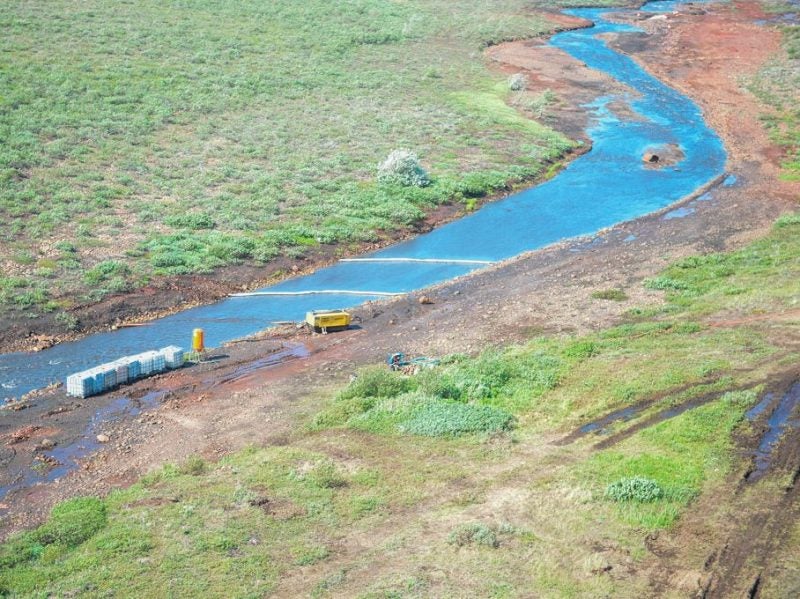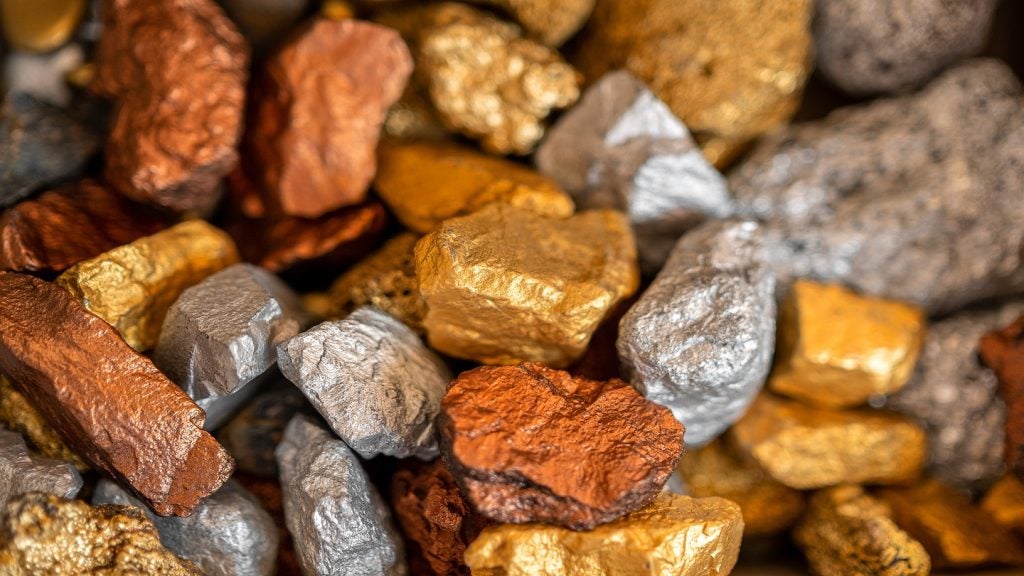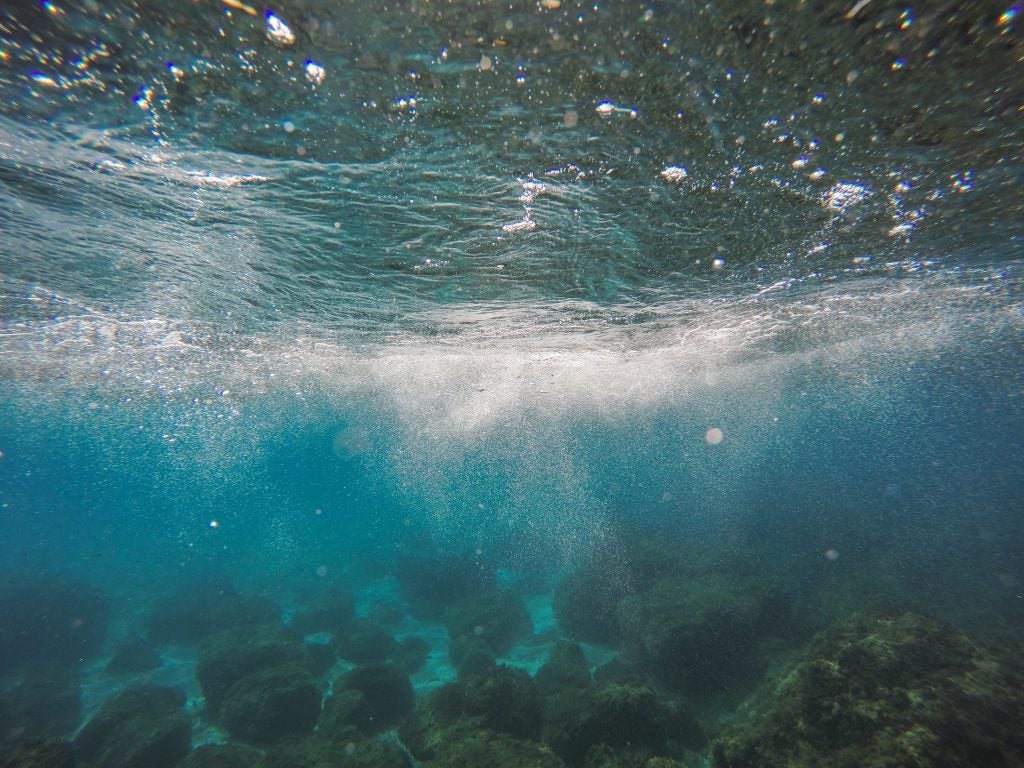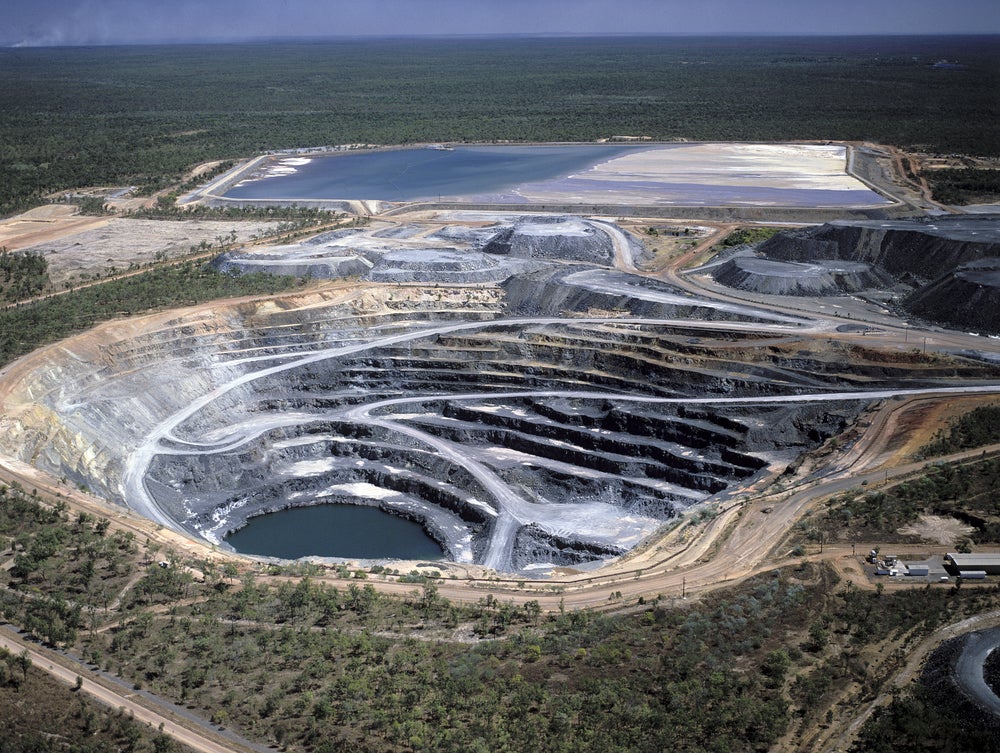
The fuel tank failed due to ulcerative corrosion, which caused holes to form at the bottom of the tank, and led to the tank’s eventual collapse. Nornickel has been accused of negligence in this regard; Russia’s regulatory body for natural resources, Rostekhnadzor, ordered the company in 2014 to clean the outer surface of the walls and roof of the tanks and restore the anticorrosion coating by 2015, and by October 2016, Nornickel was to inspect the tank bottoms. These steps were not taken.
Nornickel backlash
Nornickel claimed that the fuel tank failed due to the softening of the permafrost it was built on – an explanation that has been roundly criticised by environmental groups including the World Wildlife Fund and Greenpeace Russia, which viewed the explanation as an attempt to write off Nornickel’s negligent behaviour.
Greenpeace Russia put out a statement refuting the assertion that permafrost caused the Norilsk oil spill, alleging that those responsible for the incident were trying to elude responsibility by blaming climate change. Greenpeace said that in 2009 it published a report assessing the risks to oil and gas infrastructure of thawing permafrost. Nornickel could not have been unaware of the risks, and was obliged to conduct more thorough monitoring of its infrastructure, Greenpeace argued.
The Russian president, Vladimir Putin, has publicly criticised Nornickel as the crisis has unfolded. In a televised video call with Nornickel president Vladimir Potanin, Putin said: “If you had changed [the company’s reservoirs] on time, there would have been no environmental damage and no need to foot such costs.”
Putin has also lambasted Sergei Lipin, the head of Nornickel subsidiary NTEK who is responsible for the plant, saying: “Why did government agencies only find out about this two days after the fact? Are we going to learn about emergency situations from social media? Are you quite healthy over there?”
Nornickel has insisted that NTEK reported the oil spill in a “timely and proper” manner.
How well do you really know your competitors?
Access the most comprehensive Company Profiles on the market, powered by GlobalData. Save hours of research. Gain competitive edge.

Thank you!
Your download email will arrive shortly
Not ready to buy yet? Download a free sample
We are confident about the unique quality of our Company Profiles. However, we want you to make the most beneficial decision for your business, so we offer a free sample that you can download by submitting the below form
By GlobalDataRussia’s investigative committee announced it had launched three criminal investigations into the circumstances of the Norilsk oil spill.
Environmental impact of the oil spill
Siberian officials have warned that it will take years to clean up the Norilsk oil spill. Diesel is lighter than oil, so the spill is likely to evaporate rather than sink, but this makes the clean up more toxic. Victor Bronnikov, general director of Transneft Siberia, an oil and gas transportation company involved in the clean-up effort, said in June that the situation had been stabilising, but that clean-up teams had seen animals killed by the spill.
“If a bird lands on the diesel fuel or a muskrat swims through it, it is condemned to death,” Bronnikov was quoted in the Guardian as saying.
One proposal to quickly deal with the oil spill was to burn it, but this is not an idea supported by Russia’s environment minister Dmitry Kobylkin: “It’s a very difficult situation. I can’t imagine burning so much fuel in Arctic territory… such a huge bonfire over such an area will be a big problem.”
Russia’s environmental watchdog calculated the scale of environmental damage caused by the spill, requesting this week that the subsidiary of Nornickel responsible pay “voluntary compensation” amounting to RUB147.bn ($2.05bn) – around a third of the group’s net profit for last year. Nornickel has disputed the extent of the environmental damage and the methodology used for the calculation and has said it will contest the fine. In June, Nornickel estimated the cost of cleanup to be RUB10.64bn ($150m).
The watchdog used the highest damage coefficient in its calculation, which assumes the company did nothing to mitigate the impact of the spill. Nornickel disputes this, saying it called in a specialist clean-up team after the incident. Nornickel said in a statement that the estimate was “based on principles that led to distortion of the results and needs to be adjusted”.
Kobylkin said he stands by the estimate but respects Nornickel’s right to contest it in court if it can prove the spill didn’t cause such extensive environmental damage.
The company’s latest clean-up update said that more than 33,000 tons of water-fuel mixture have been collected in the area, and over 172,000 tons of contaminated soil have been removed.






